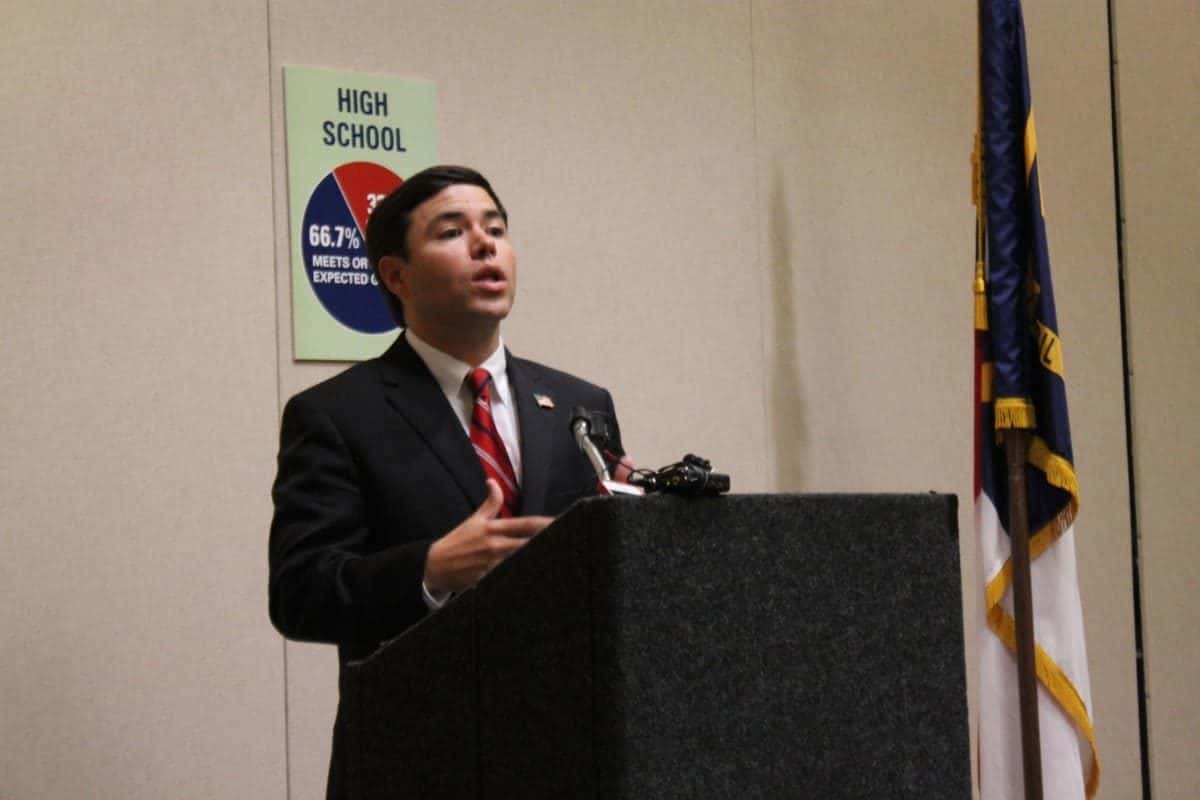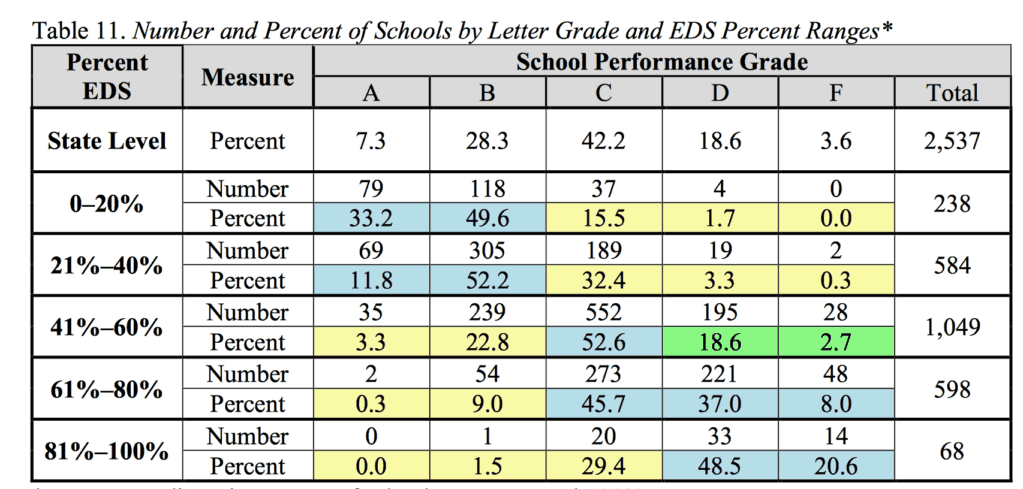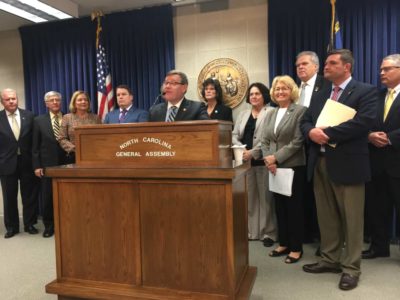

Education policy is complicated, which is unfortunate because my job is to communicate to people what’s happening in the education policy world in a clear, concise, and — when possible — entertaining way. One of my biggest frustrations is that, often, when I want to explain a matter of education policy to the public, I first have to go through extensive background and explanation so that they understand what it is exactly I’m talking about.
Take the state’s school performance grades, for example.
These are the grades given to every school in the state, and they have been the subject of a great deal of controversy since their advent. That’s because nobody wants their school to be considered a “D” or “F” school, and they certainly don’t want the designation of low-performing.
In the most recent release of the grades, 7.3 percent of the state’s 2,537 schools received an A, 28.3 percent received a B, 41.2 percent received a C, 18.6 percent received a D, and 3.6 percent received an F. That includes charter and traditional public schools.
The total number of low-performing schools was 476. These are schools that get a D or F and don’t exceed growth. Those numbers are down slightly from 505 the year before.
Those are the bare bones of the matter, but there is so much there to unpack.
First, the composition of the grades. The state arrives at these letter grades using a weighted formula that includes 20 percent academic growth and 80 percent academic achievement. Growth is essentially how much students improve in a year. A school can be judged as not meeting growth, meeting growth, or exceeding growth. Achievement is essentially how well students perform on standardized tests. It gives a measure of whether students are on grade level or not.
For years now, opponents of the grades have tried to change the grading formula to emphasize growth more. They argue that growth is a more true measure of teaching than achievement. Growth, they say, shows how much students are learning, whereas achievement can be put down to a number of factors including socio-economic status, home life, adverse experiences, and more.
One of the biggest complaints about the grades is that they simply show where the poor students go to school. Every year, the school performance grades do show that the schools with the highest numbers of economically disadvantaged students (EDS) get worse grades.


Proponents of the grades argue that the goal of schools is to make sure students know what they are supposed to know, and that achievement shows whether those students are where we want them to be as a state.
Now, to the grade scale. The school grades are based on a 15-point grade scale, meaning that an 85 to 100 is an A and so on down the line. The grades were meant to transition to a 10-point scale eventually — meaning a 90-100 would be an A — but the General Assembly has continued to extend the 15-point scale. At the moment, the grades are supposed to move to a 10-point grade scale next school year.
There has been opposition to transitioning to a 10-point scale, because the number of schools that get Ds and Fs and the number that are considered low-performing will only grow, and the state already isn’t adequately positioned to help the ones we have. Plus, opponents argue that the low grades and “low-performing” status are unnecessarily stigmatizing. And, of course, they question the very premise behind the grades as well as how they are arrived at.
Which brings us to the news this week. A bill was filed that would make that 15-point scale permanent. A few media stations jumped on the story and gave the impression that this bill didn’t apply to schools but to student grades. And uproar followed. The News & Observer has a good run down of what happened here.
National media outlets joined in the fray, further spreading the incorrect interpretation of the bill. Last week, Seth Meyer even joked about it. Go to about 2:30 in the video below to see what he had to say.
The confusion led Superintendent Mark Johnson to take to Facebook to debunk the news.
And the end result was a lot of confusion this week over what was happening in the General Assembly when it came to education policy.
I haven’t reported on this bill yet, because I usually don’t report on bills that are filed until they reach a committee. That’s because there are tons of bills that are filed and only a few that ever seriously get considered. For me, it’s not news until it seems likely that lawmakers are actually going to talk about it. Furthermore, if legislation is being considered that seems particularly impactful, it raises a red flag. Is it actually as impactful as it seems at first glance, or am I misunderstanding? That’s when I start talking to people smarter than me to make sure I know what I’m talking about.
I make mistakes. I make plenty. There is a whole page on our website dedicated to showing you all the mistakes we, as an organization, have made. Check it out here.
But the takeaway, I think, from this week’s incident is that it’s important if any of us are going to talk about a complicated subject to understand that subject. Perhaps more importantly, it’s necessary that we have people out there who can help us understand the topic so that we can explain it. Fortunately, in my more than four years covering education policy, I have formed those relationships with people who, when necessary, will let me know that I’ve got something wrong. I’m sure some of them are reading. It’s even possible that they will write to me to challenge something I said here. That’s ok with me.
Getting it wrong can have consequences, and that is a humbling and scary realization. I will do my best to make sure the only impact of my reporting is that you understand a subject better. That is my goal. That is my promise.
EducationNC’s goal and promise is for you to be empowered to weigh in on policy debates. Use our mapping tool to adjust the school grades formula and scale to your liking and see how the grades change.


